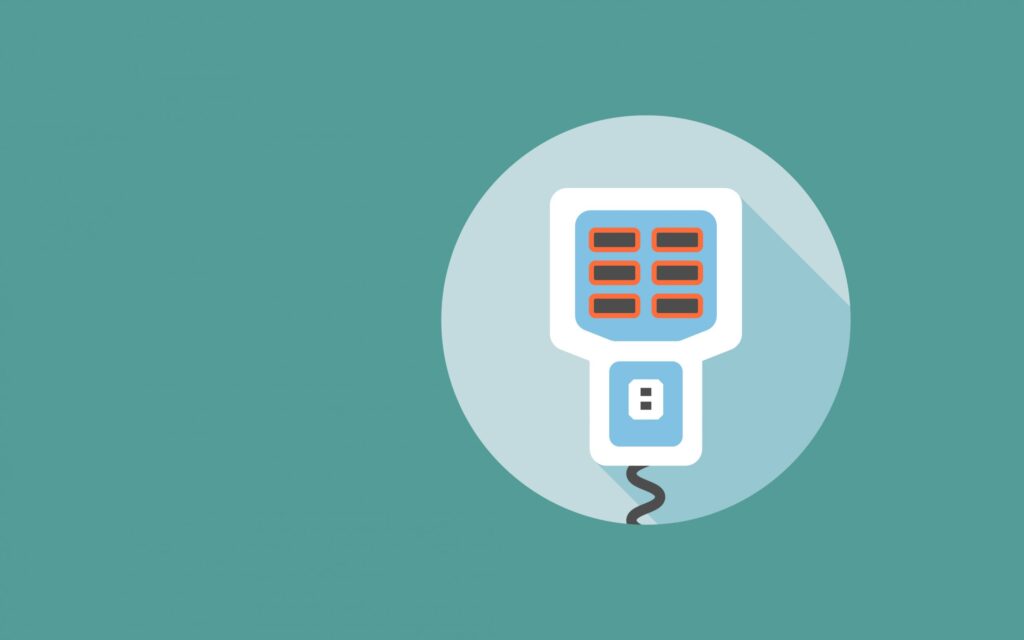

As an Amazon Associate Conductscience Inc earns revenue from qualifying purchases
Energy consumption data is invaluable in energy management and conservation. Therefore, electrical power meters are considered essential tools in households, offices, and industrial settings. Note that such energy usage monitors measure the electrical power of single devices or entire buildings and can be used to verify different energy parameters.
Interestingly, there are different types of electrical power meters. To provide an example, some highly sophisticated utility units are installed by power companies to measure energy consumption and costs. For those who prefer a customized look of their energy consumption at home, there are plug-in USB models and even entire household devices. While plug-in units can be inserted into sockets to measure individual appliances, some power meters can be linked to a building’s electric box to provide readings of the entire building’s energy, power, and voltage consumption. Furthermore, power monitoring systems that use a series of components and apps that measure home energy use are also available on the market.
Electric usage monitors are invaluable in numerous settings and can help to reduce energy consumption throughout the globe. Before choosing a unit, however, prospective buyers should consider three major factors: requirements, specifications, and total costs.
Requirements: Firstly, users should refine their requirements in order to choose an electrical power meter (either a plug-in meter or an entire household energy reader). Note that when it comes to single-appliance devices, such power meters are ideal for people who rent and do not have access to the main circuit breaker box.
Specifications: Some of the main parameters to look for in an electrical power monitor are accuracy, functionality, and customizable measurement periods. Good USB power models, for example, should be able to track not only energy consumption but real voltage and current to make a proper diagnosis. Units should be able to track and record energy usage over time to help users develop energy-saving plans. To provide an example, power meters with customizable measurement periods can help to conduct measurements at different hourly rates (e.g., peak hours and nighttime). Some units can even make calculations for periods of up to 12 months, depending on changes in prices and tax. Last but not least, some smart power meters can control the measuring device (e.g., shut it off) based on different setting schedules in order to save energy and cut down expenses.
Total costs: Given the variety of electrical power meters for sale, it’s no surprise that prices can vary significantly. For example, models that can store multiple readings on a multi-mode display an entire monitoring systems can be more costly than plug-in models.
Due to the abundance of units for sale, choosing an electrical power meter can be a challenging task. Therefore, based on different connectivity, functionality, and installation specifications, as well as user reviews, we provide a list of some of the best meters available on the market.
Amanka USB Digital Power Meter is a popular USB power meter that can help users test for voltage, current, capacity, power, and recording charging time/status. To be more precise, the unit can be used to verify if USB compatible devices (e.g., car charges) provide enough voltage and wattage for the devices plugged in. Note that this meter is ideal for data synch and battery charging purposes as it has a built-in circuit with an integrated CW3002D chip for large current fast charging. With its 0.96-inch LCD display, convenient design, and protective electronic switch system, Amanka USB Digital Power Meter is a versatile tool ideal for both seasoned users and do-it-yourself enthusiasts.
P3-P4400 Kill A Watt Electricity Usage Monitor is another great electrical power meter that shows volts, amps, and watts with 0.2-2% accuracy. Additionally, this unit can help homeowners manage their energy use and power quality by day, week, month, and year. Note that this model is compatible with inverters and is designed for AC 115-125-volt appliances, ideal for American households. With its large LCD display, this meter is a convenient tool suitable for a wide range of applications, such as identifying which devices are costing more, checking if the electrical supply is constant, and detecting brownout conditions.
Kavalan Power Indicator is a good choice for anyone interested in measuring USB Type-C charging performance and checking the efficiency of wall warts and batteries. The unit provides bright readings of three major parameters: amps, volts, and watts, ensuring that the device of interest is receiving adequate charging. Note that this power indicator is compatible with different USB-C laptops and devices, including the MacBook, iMac, Dell XPS, Acer Aspire, HP Spectre, ASUE Zenbook, Lenovo Thinkpad, Eluktronics, Chromebook, and Microsoft Surface Pro.
Eversame 2 in 1 Type-C USB Tester is an excellent electrical power tester that measures voltage, current, capacity, electric quantity, power, load impedance, and other vital data. The unit can be used to check the charging performance of panel charges and USB charging cables. Note that it is compatible with type A, C, and Micro B plugs. With its color screen display, professional safety protection, and advanced features, this meter is one of the most versatile units for sale.
Etekcity Voltson Meter is a sophisticated power meter that can be utilized to track the power usage of connected devices and control them remotely. Note that the unit connects with Wi-Fi (a secured 2.4 GHz Wi-Fi network is required), and it pairs with Alexa and Google Assistant. With advanced connectivity settings and voice control functions, this electrical power meter is a powerful unit ideal for reducing energy usage and costs.
Matserhawk USB Power Meter is another powerful USB Type-C electrical meter with various functionalities. The unit comes with a 1.44-inch color LCD display and Type-C interference. Note that it is compatible with different protocols, such as PD QC2.0 QC3.0/4.0 MTK D protocol and Qualcomm QC3.0/4.0 protocol. Last but not least, this meter supports 360-degree arbitrary rotation of the screen to meet different angle readings. With a variety of features and a convenient design, Matserhawk USB Power Meter is ideal for measuring different appliances, notebooks, and battery aging.
BAYITE-PZEM-061 LCD Display Digital Meter with Current Transformer is a versatile household monitoring station that can display readings regarding voltage, current, active power (kW), and energy (kW/h). Note that this unit is designed for AC 80-260 V 0-100 A at frequencies 50-60 Hz. With its large display with blue backlight and advanced storage capabilities, this digital meter is perfect for power monitoring and people who produce their own energy.
TED Pro Home is a state-of-the-art electricity monitoring system that allows users to connect with different smart home protocols and measure their energy consumption. Note that the unit can display different parameters, such as voltage, power, and current. Additionally, the system can be used locally or controlled remotely. Given its sophisticated design, it’s no surprise that this electricity monitoring tool can be used to perform a household energy audit, view real-time usage, and project monthly bills by reducing power usage.
D-Link Mini Wi-Fi Smart Plug is a convenient electrical power meter ideal for protection, power monitoring, and remote management. Note that the unit works with 2.4 GHz Wi-Fi and pairs with Alexa and Google Home, which allows users to turn electronics off or on via their phone and the user-friendly Mydlink app (iOS, Android). With a wide range of settings, this plug-in meter can revolutionize energy management in both households and commercial settings.
Emporia Vue Smart Home Energy Monitor with Expansion Module and 8 Sensors is a powerful home energy monitor used to track energy consumption, prevent repairs, and conserve energy. Note that the unit connects to 2.4 GHz Wi-Fi to help users monitor the energy consumption of appliances, heating, and AC remotely (via iPhone or Android app). Additionally, there’s an Expansion Module that can monitor up to eight individual circuits in order to prevent equipment problems. With numerous measurement settings and a convenient design, this unit is one of the most powerful meters on the market.
Electrical power meters are essential in energy management. These tools can help users to find opportunities to save energy and reduce energy waste by replacing or improving equipment (e.g., energy switches). Having accurate energy data can also help consumers take action to target energy waste, costs, and energy awareness; the more data, the more effective energy consumption plans and savings.
While power stations and alternative energy sources should meet energy demands worldwide, energy management and conserving energy are essential global needs that affect prices and emissions legislation. Energy management can benefit not only households, businesses, and unwatched buildings, but help societies to deal with the dependence on fossil fuels and the effects of global warming.
Electrical power meters are essential electrical tools that can be used to measure the electrical power of single devices or entire buildings. Such units can be used to verify different energy parameters, identify which devices are costing more, check the charging performance of panel charges and USB charging cables, perform a household energy audit, and reduce power usage.
Given their wide applications, it’s no surprise that electrical power meters are in-demand products in households, offices, and industrial settings. Note that prospective buyers should consider three major aspects: requirements, specifications, and total costs, with functionality, customization, and connectivity being essential parameters to consider. In the end, having accurate energy data can help to target energy waste, costs, climate change, and energy awareness.
